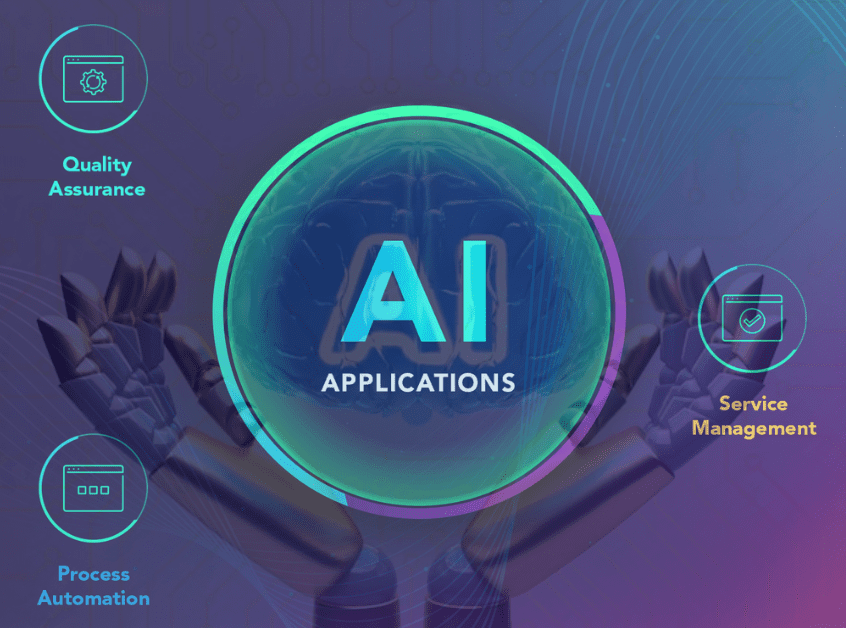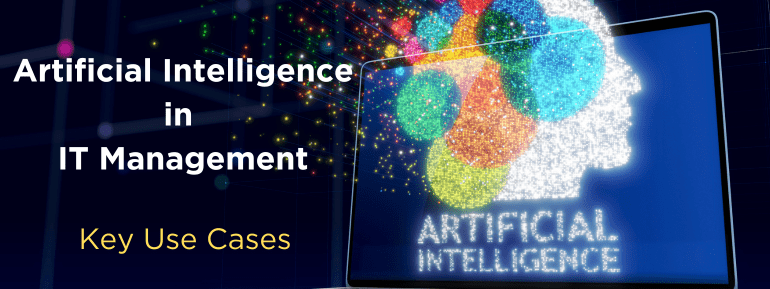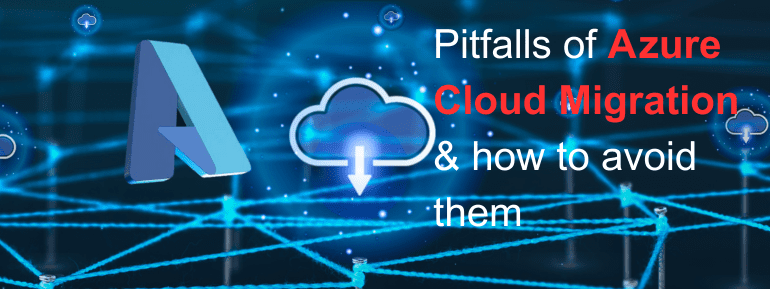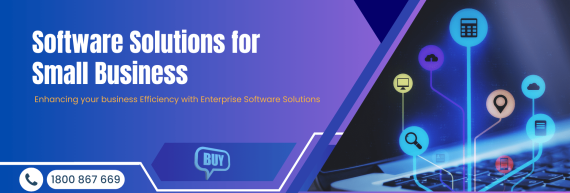Engage your senses, unlocking the Power of Artificial Intelligence in IT Management across the table
AI represents a futuristic concept that has the potential to shape the future and its possibilities. It has already brought about a major transformation in traditional computing methods and is increasingly penetrating various industries, leading to profound changes. As the world becomes more digitalized and all sectors move towards greater intelligence, IT companies must keep up with the constantly evolving landscape of intricate processes and rapidly advancing innovations. This requires a proactive approach to stay relevant and competitive in the market.
The IT industry: AI at the forefront
The IT industry is navigating a delicate balancing act of driving innovative initiatives while grappling with the challenges posed by traditional infrastructures. As IT infrastructures grow more complex and clients become more sophisticated, companies need to search for Artificial Intelligence in IT Management to enhance IT operations management and expedite problem resolution in complex modern IT environments. AI, representing a tremendous breakthrough. It has proven to be an asset for managing the diverse, dynamic, and challenging IT landscape.

AI technologies for IT
AI, which stands for Artificial Intelligence, is a field of computer science that develops systems capable of performing tasks that typically require human-like abilities, such as speech and text recognition, content learning, and problem-solving. By utilizing AI-powered technologies, computers can execute specific tasks by analysing vast quantities of data and identifying recurring patterns within that data.
AI: Technology Segments
AI is an all-encompassing term categorized into various technology segments, including machine learning, deep learning, natural language processing, image processing, and speech recognition. However, machine learning and deep learning play a crucial role in the IT industry.

Machine Learning
At the core of intelligence lies the ability to learn. Machine learning (ML) is a branch of AI that centres around computer programs that analyse data using specialised algorithms. These programs can modify themselves without the need for human intervention, producing desired outputs based on the analysed data. In essence, ML techniques involve training machines to analyse large datasets and learn how to perform specific tasks.
Deep Learning
Deep Learning (DL) is a subfield of machine learning (ML) that uses similar algorithms and techniques but with more advanced capabilities. In DL, a computer system is trained to perform classification tasks directly from sounds, texts, or images by using large amounts of labelled data and neural network architectures. Unlike traditional ML, DL models are able to automatically learn and improve over time by identifying complex patterns and relationships within the data.

Natural Language Processing
Natural Language Processing (NLP) enables AI to comprehend and manipulate human language similar to humans. It allows computers to read and interpret text or speech in a fluid and natural way, despite the inherent complexity. NLP relies on two fundamental concepts: Natural Language Understanding and Natural Language Generation. These two engines power chatbots and virtual assistants to communicate with users. In addition, sentiment analysis driven by NLP has proven to be a useful tool in IT.

Computer Vision
Computer vision is a technology that enables AI to extract valuable information from digital images, videos, and other visual content. AI systems can make decisions or provide recommendations based on the insights obtained by analysing and interpreting visual data. In simple terms, while AI empowers computers to think, computer vision empowers them to see, observe, and comprehend.
AI applications in IT
While Quality Assurance, Service Management, and Process Automation are certainly important application areas for AI, it’s worth noting that there are many other areas where AI is also being utilised in the IT industry. Some examples include cybersecurity, data analysis and decision-making, customer experience, and supply chain optimisation, to name a few. This is a versatile technology that can be applied in various fields and industries.

AI for Service Management
AI technology is increasingly being employed in service management. By using AI for service automation, businesses can optimize their resources, resulting in faster, more cost-effective, and efficient service delivery.
Self-solving service desk
Nowadays, IT companies can leverage AI technology with their machine learning capabilities to create a self-solving service desk. Such a desk can analyse all company input data and offer users appropriate suggestions and solutions. Using AI, organisations can monitor user behaviour, provide suggestions, and enable self-help options, thus enhancing service management effectiveness. Ultimately, AI facilitates a better user experience by enabling improved self-service.
The machine learning (ML) and deep learning (DL) capabilities of AI enable the system to analyse requests submitted to a service desk. The AI system can identify similar requests, compare newly submitted ones with previously resolved ones, and draw upon past experiences to quickly determine the best solution to apply.
AI is a highly effective business tool that can assist IT teams in their operational processes, enabling them to adopt a more strategic approach. Through tracking and analysing user behaviour, an AI system can suggest ways to optimise processes and even contribute to developing effective business strategies.
AI for Process Automation

With the pace of network innovation, evolution, complexity, and change, more than humans and manual processes are required. The next step in automation is AI, which will make various business processes smarter, more aware, and more contextual. By leveraging AI-powered automation, IT companies can automate many operational processes, reducing expenses and minimising manual work. IT process automation can streamline various IT operations in numerous situations, replacing repetitive manual tasks and business processes with automated solutions.
AI-driven computer engineering

AI-driven computer engineering
AI represents the future of computer programming. Traditional programming involves creating a series of rule-based decisions in highly complex conditionals. However, with advanced AI systems, software development cycles can soon be run and managed entirely by the system itself, as it can understand the core of the code. AI is already helping human programmers navigate the increasingly complex number of APIs, making coding easier for developers.
Automated Network Management
Furthermore, AI can automate the processes involved in running and managing company networks. Using machine learning (ML) capabilities, AI can identify and address issues as they arise, taking the necessary actions to bring the network back to a stable operating state.
AIOps: AI for IT Operations

The term “AiOps” was first coined by Gartner and refers to using AI to manage information technology based on a multi-level platform. AIOps utilizes the power of big data, analytics, and machine learning to automate data processing and decision-making processes. The AIOps platform enables comprehensive insight into past and present states of IT systems based on real-time and historical data analysis.
Artificial Intelligence in IT Management leverages AI technology to simplify IT operations management. In complex IT infrastructures, this expedites the resolution of issues.
IT companies are facing the challenge of managing an ever-increasing volume of data from primary collection systems. The constant influx of new information sources and ongoing system modifications. This complexity can lead to performance issues and make extracting insights from the data easier. AIOps provides a solution to these challenges by leveraging AI and machine learning to effectively manage and analyse vast data. This allows IT companies to gain deeper insights and make informed decisions based on real-time data.
To gain the most out of Artificial Intelligence in IT Management, you have chosen an AIOps platform to meet your goals. The main feature are:
- Accumulated data management
- Stream data management
- Log reception
- Automated pattern discovery and prediction
- Anomaly detection
- Identification of the true source of problems
- Receive data packets
- Reception of digital indicators
- Reception of documents
Indeed, the availability of these elements in an AIOps platform can greatly enhance the IT operations management of a company. By automating data processing and decision-making, AIOps platforms can help IT teams focus on critical issues that require human intervention rather than being overwhelmed by irrelevant data. This can lead to faster problem resolution, reduced downtime, and improved overall performance of IT systems.
Final Word!
As the IT industry continues evolving with the rise of Innovative Technologies, companies must adopt smart and efficient solutions to manage their operations. Artificial Intelligence, with its Machine Learning and Deep Learning capabilities, has proven to be a game-changer in resolving and preventing high-severity outages. From Quality Assurance to Service Management and Process Automation, AI offers a powerful toolset to transform traditional IT operations. At TECHOM Systems, we specialise in providing cloud-based solutions for IT operations management.
We can help your company leverage the power of Artificial Intelligence in IT Management to optimise your IT operations. Schedule a free consultation today and explore how our cloud solutions can transform your business.













